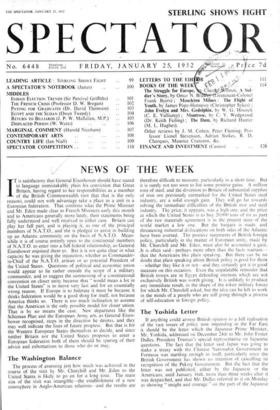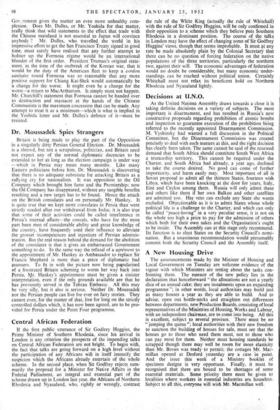The Yoshida Letter
If anything could arouse British opinion to a full realisation of the vast issues of policy now impending in the Far East it should be the letter which the Japanese Prime Minister, Mr. Yoshida, addressed on December 24th to Mr. John Foster Dulles, President Truman's special representative on Japanese questions. The fact that the letter said Japan was going to make a treaty with the Chinese Nationalist Government in Formosa was startling enough in itself, particularly since the British Government has shown no intention of cancelling its recognition of the Peking Government. But the fact that the letter was not published, either by the Japanese or the Americans, until January 16th, more than three weeks after it was despatched, and that Mr. Dulles referred to it on Monday as showing " insight and courage " on the part of the Japanese Gov_ rnment gives the matter an even more unhealthy com- plexion. Does Mr. Dulles, or Mr. Yoshida for That matter, really think that wild statements to the effect that trade with the Chinese mainland is not essential to Japan will convince anybody ? Mr. Dulles, who travelled the world in his impressive effort to get the San Francisco Treaty signed in good time, must surely have realised that any further attempt to bolster up the Formosa regime would be an international blunder of the first order. President Truman's original state- ment, at the time of the outbreak of the Korean war, that it would be the duty of the American fleet to keep a cordon sanitaire round Formosa was so reasonable that any more positive support for Chiang Kai-Shek would automatically be a change for the worse. It might even be a change for the worst—a return to MacArthurism. It simply must not happen. Mr. Churchill's statement that Formosa cannot be handed over to destruction and massacre at the hands of the Chinese Communists is the maximum concession that can be made. Any attempt to treat it as a minimum—which is what is implied in the Yoshida letter and Mr. Dulles's defence of it—must be resisted.



































